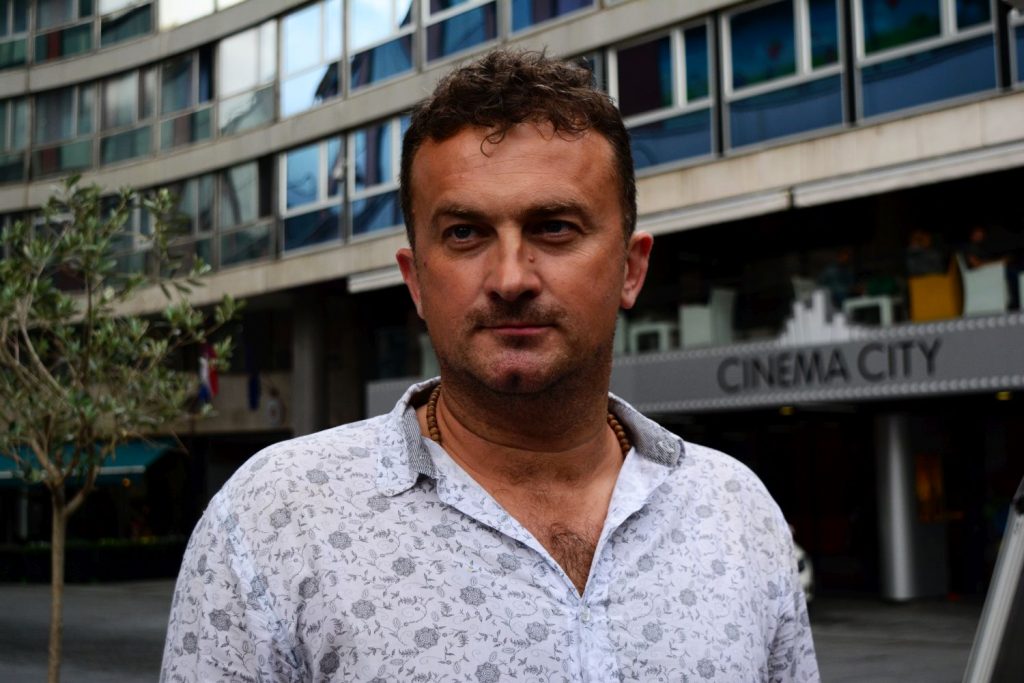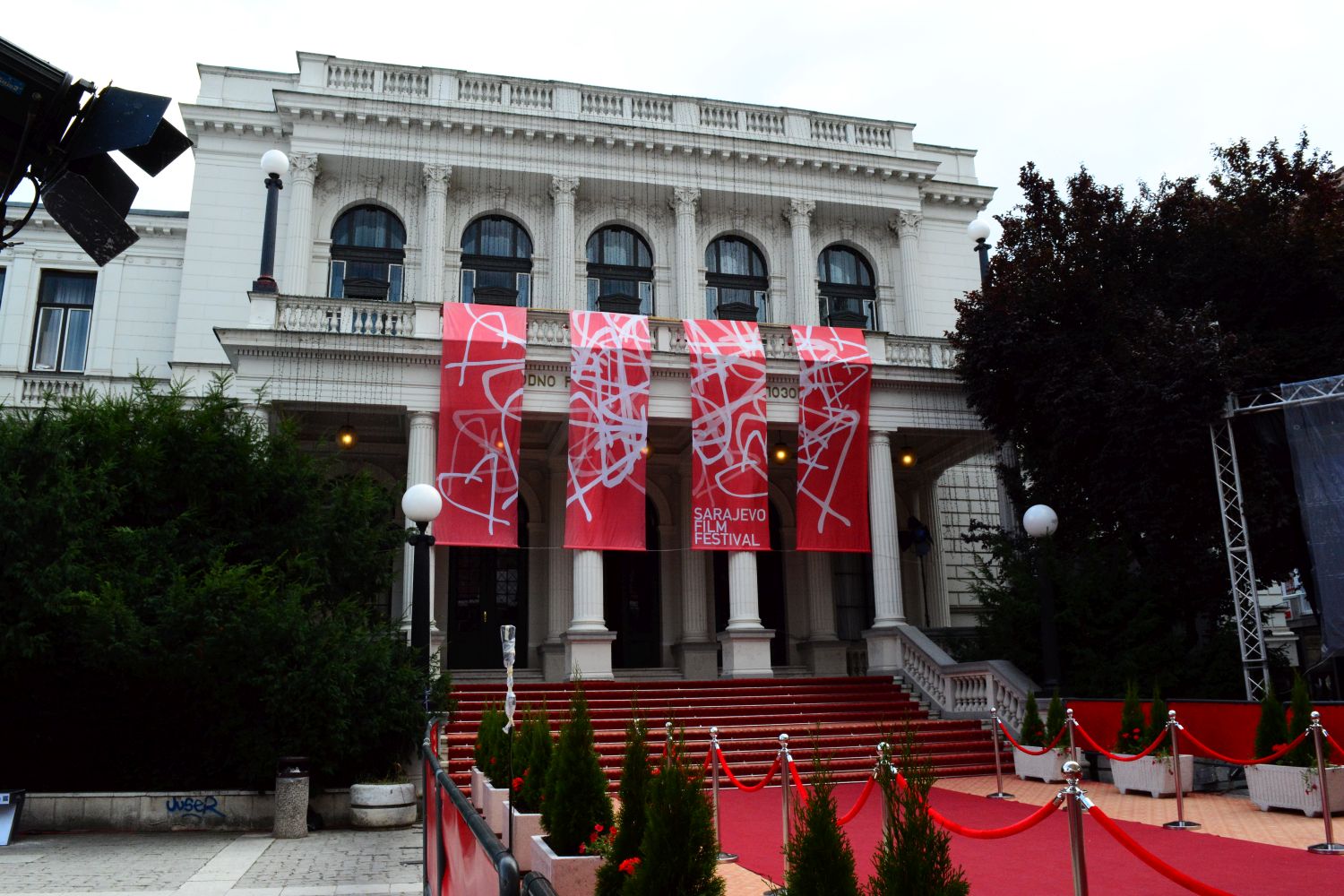
A new film focusing on survivors of the Srebrenica genocide premiered at the 21st Sarajevo Film Festival last week. Alessandra Goio and Marta Vidal report.
On 17 August 2015, Bosnian director Samir Mehanović presented his documentary film The Fog of Srebrenica to a packed cinema hall the 21st Sarajevo Film Festival.
The film tells the story of Mehmed, Hatidža, Ahmed and Zinahida, four of the survivors of what most define as the worst crime committed on European soil since the Second World War. Over seven days of July 1995, more than 8,000 Muslim Bosnians were killed in and around the city of Srebrenica. By reporting the characters’ personal experience of this tragedy, the film makes the audience reflect upon many important questions about humanity, memory, and forgiveness.
On stage with some of the film’s characters, survivors of the Srebrenica genocide and victims’ family members, Mehanović talked about the importance of remembering Srebrenica and the need to build hope for future generations in Bosnia-Herzegovina.
“I started making this film 20 years ago,” said Mehanović, who was raised in Tuzla and still remembers the events of July 1995, when countless refugees were arriving from Srebrenica, forty miles from his town. “The memories are haunting. By making this film I opened a Pandora’s box,” he added.
Mehanović wanted to study directing before the war, but when the conflict started he established a theatre company instead. “When the war was around we were doing shows like The Little Prince,” he remembered.
In May 1995, Mehanović escaped the Tuzla massacre, in which about 71 young people died, and left Bosnia in August of the same year, seeking asylum in Scotland after being invited to perform at the Edinburgh Fringe Festival.
“I went to Edinburgh and I stayed there, but I was continuously linked to Bosnia,” he told the audience.
In 2013 he directed The Way We Played, a film about two boys from different ethnic backgrounds in the beginning of the Bosnian war. But for The Fog of Srebrenica, Mehanović’s motivation came simply from the desire to tell the story of the people who died and disappeared.
Whilst making the film he conducted extensive research on the genocide, which opened old wounds. “It questioned my position on humanity,” he explained, and forced him to ask himself, “Is man really worse than an animal?” However, making the documentary also gave him hope.
“The beautiful thing was that I did not feel hatred in the characters,” Mehanović explained, adding that he believed that forgiveness played a very important part in his film. Even though most of the documentary’s characters lost several family members and witnessed extremely violent situations, they were still able to forgive and stated they did not seek revenge. “People do forgive, they are not full of hatred,” the director claimed.
Mehmed Hodžić, one of the film’s characters and a hairdresser living with his wife and two sons in Srebrenica, lost 67 family members during the massacre. He moved to Sarajevo, but after the war, he decided to return to Srebrenica. He described that life in Srebrenica is now peaceful and just as normal as in any other small city.
Yet Srebrenica is an event that should never be forgotten, especially by future generations. In the words of one of the film’s characters: “Srebrenica is never a finished story.” As such, Mehanović is planning to make a feature film. “I feel like I did not tell enough,” he said.

Mehanović also used his speech to highlight the importance of justice in reconciliation processes. “If you commit a crime, you need to send the future generations the message: you will not go without punishment,” he stated.
In his research, Mehanović used archives and reports from the International Criminal Tribunal for the Former Yugoslavia (ICTY). Set up in 1993 by the UN Security Council, the institution had the primary aim of prosecuting the perpetrators of the crimes committed in the former Yugoslavia. “The ICTY had the best judges from around the world,” Mehanović noted, however, that “in the last twenty years they prosecuted only a few people for their involvement in the Srebrenica genocide.”
The director also affirmed that the situation remains “unbearable” for the survivors.
“They are deprived of the basics and they live on just €5-10 a day. The government doesn’t take care of them, nor do normal people. Now people seem blind eyed as they turn their back to issues such as Srebrenica. I believe,” he continued, “that there is a conspiracy of silence. People do not talk about this stuff.”
Mehanović believes that future peace in Bosnia rests on the existence of a dialogue that enables people to learn how to live together. But although his movie is about Bosnia and the Yugoslav war, the message is addressed to the world. “Sadly, horrors such as Srebrenica can happen everywhere and anytime,” he explained.
“We must not let this happen again,” he concluded.






